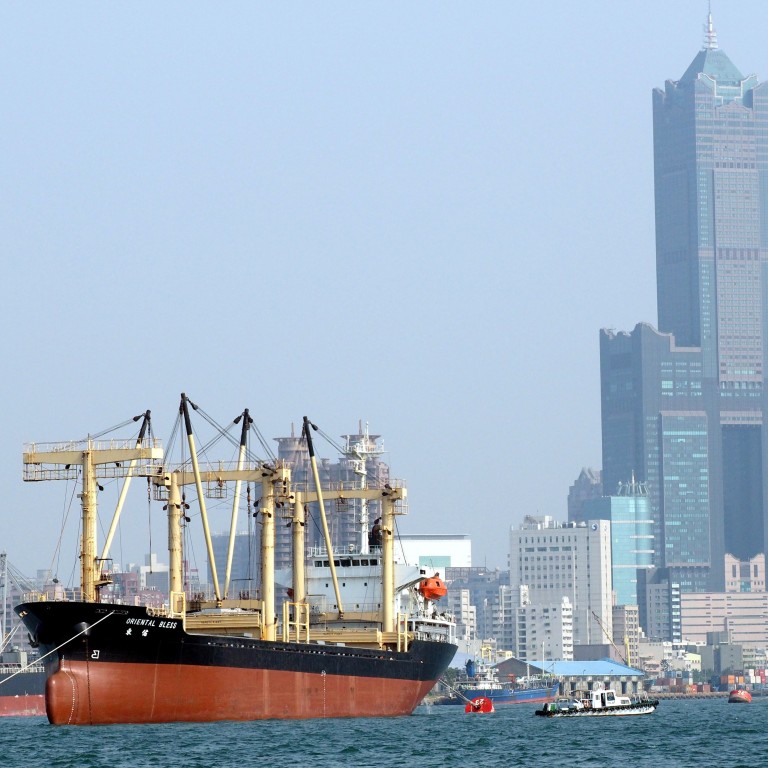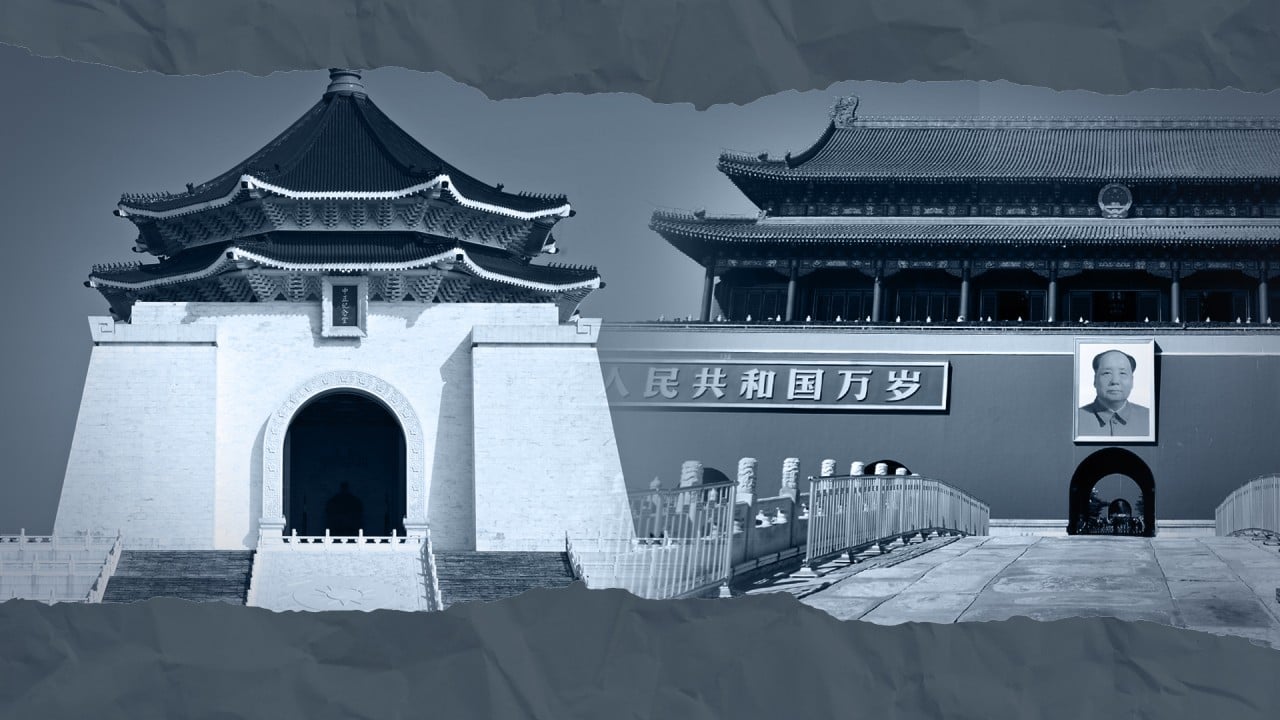
Taiwan exports set to suffer from RCEP trade deal exclusion
- Tariff reductions within new trading bloc could hurt the island’s exporters which send most of their goods to member states
- Petrochemical, steam and machinery industries expected to be hit the hardest
Business leaders fear Taiwan could lose its competitive edge after being left on the sidelines of the region’s largest free trading bloc, formed by China and 14 other countries.

03:29
RCEP: 15 Asia-Pacific countries sign world’s largest free-trade deal
But the economic ministry has acknowledged that Taiwan’s petrochemical, steel and machinery industries may be affected by the trade agreement, widely seen as bolstering Beijing’s regional influence against a backdrop of increasing pressure on the self-ruled island.
Chen Bao-lang, chairman of the Formosa Petrochemical Corp, said he was worried tariff reductions for South Korea and Japan through the RCEP would wipe out the competitiveness of the island’s petrochemical goods in Southeast Asia, Taiwan’s Central News Agency reported.
Jimmy Chu, chairman of Taiwanese machine tool maker Fair Friend Enterprise Group, expressed similar concerns, saying that South Korea’s tariff reduction gains would hurt machine tool companies.
Chen Chien-kai, associate professor of international studies specialising in China and Taiwan at Rhodes College in the US, said: “Though not unexpected, Taiwan’s exclusion from RCEP is still a political setback for Taiwan’s efforts to be recognised as a legitimate participant of regional and global issues.”
Taiwan, US to hold new economic dialogue but trade deal ‘on back-burner’
Tsai has been pressing for Taiwanese membership of both the RCEP and CPTPP since assuming office in 2016, but her efforts have been complicated by mounting pressure from Beijing, which claims the island as its own and forcefully rejects any international actions which infringe on its sovereignty.
Tu Jenn-hwa, a specialist in foreign investment and global trade at the Chinese Culture University in Taipei, said the impact of the RCEP would be considerable on Taiwan, which sent 57.2 per cent of all its exports to RCEP countries in the first 10 months of the year, according to official data.
“There is a glimmer of hope that Taiwan can join the CPTPP, but this will be extremely difficult,” Tu said. “Even if the US and Japan are willing to allow Taiwan to join – assuming the Biden administration will want to join – the price will be very high and right now the Tsai government will not pay this price.”
The RCEP trade deal is also a blow to Taiwan’s “New Southbound Policy” which has sought to reduce the island’s economic reliance on mainland China by actively boosting engagement with many of the very countries that have now joined the RCEP.
RCEP a ‘wake-up call’ for Europe and the US to unite against China
Alex Tan, a professor specialising in Taiwanese politics at the University of Canterbury in Britain, said there was a risk of trade being diverted away from Taiwan with the signing of the RCEP.
“Being outside RCEP, businesses say it’s bad for them and if it’s bad for them, it’s worse for working people in Taiwan because anything made in Taiwan will be more expensive to export to the New Southbound countries and partners,” he said.
“The challenge for Taiwan in my view is more domestic political economy issues, the danger of an industrial vacuum for Taiwan because the only way for companies to be competitive is to invest in these RCEP countries.”
Tan said Taiwan would also struggle to market itself as a potential partner in other regional trade agreements, with the added challenge that the CPTPP required all countries to agree to the addition of new members.
“Taiwan doesn’t have many relations with three of the members: Chile, Peru and Mexico,” he said. “And all of these countries see China as a major trade partner and Taiwan is not close to being in their top five. So will CPTPP countries invite Taiwan before they invite China?”

10:22
Why has the relationship between the Chinese mainland and Taiwan taken a turn for the worse?
China’s Ministry of Commerce said on Thursday that it was open to joining the CPTPP, which replaced the original Trans-Pacific Partnership – devised by the Obama administration as part of its “pivot to Asia” – after the US withdrew from the agreement in 2017.
Analysts say Taiwan’s bid to join the CPTPP may be easier if its most important ally, the US, were to join. However, incoming US president Joe Biden has been non-committal and indicated he would “not sign any new trade deal” until major investments were made for US workers and infrastructure.
Chen, from Rhodes College, said he believed the economic impact of the RCEP would not be too big to bear for Taiwan. But, he added, if Biden “changes the US strategy toward China from ‘confrontation’ back to ‘engagement’ it will not be easy – if not completely impossible – for Taiwan to join the CPTPP, even if the US does end up rejoining it.”
Elizabeth Larus, an expert on Taiwan’s politics at the University of Mary Washington, said Taiwan may have a better shot at joining the CPTPP now that China was in the RCEP, although Beijing would strongly protest against the island’s potential membership to the CPTPP as well as any free-trade agreement between Taiwan and the United States.
“Because of the sheer size and the global expanse of its economy, China will be the dominant power in any organisation or arrangement, such as RCEP, to which it belongs,” she said. “China will prohibit Taiwan’s participation in RCEP, but has less power to keep Taiwan out of CPTPP.”

